How To Increase Skin Firmness: Expert Tips & Treatments
Some practical and effective ways to keep your skin wrinkle-free and taut.
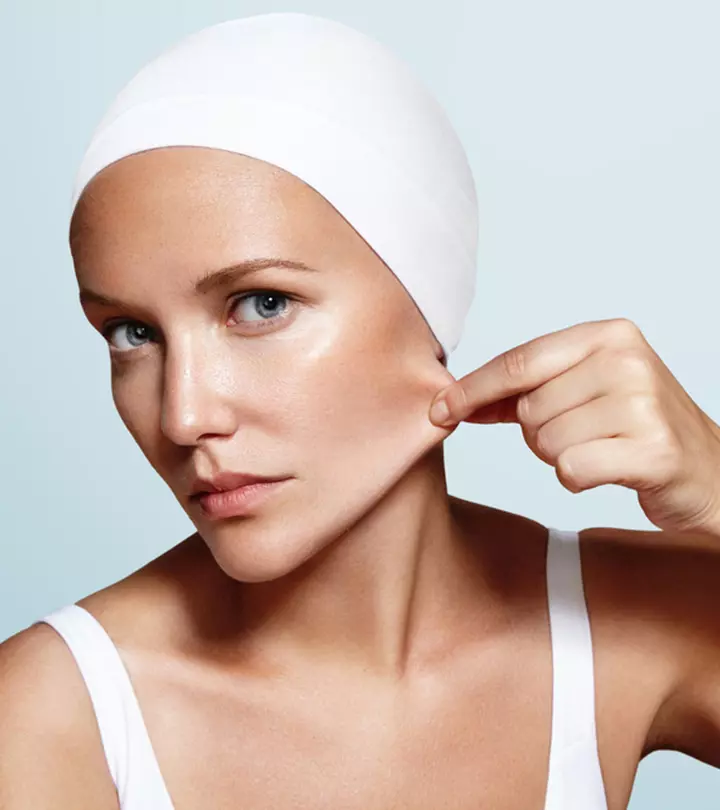
Image: ShutterStock
Let us be honest. It is futile to expect skin firmness similar to that of a baby or an adolescent as you age. After all, aging is a natural process. No creams, dermatologist, or DIY hack can claim otherwise.
However, you can keep your skin tight, healthy, soft, and firm as you age. We show you how to reverse the signs of aging and keep your skin radiant through the years in this article. Scroll down for more information.
In This Article
What Does Firmer Skin Mean?
Firm skin basically refers to your skin’s ability to bounce back into place after you stretch or pull at it. Two proteins – collagen and elastin – are responsible for providing your skin with the required amount of suppleness, firmness, softness, and flexibility. According to research, your body is made up of 30-40% collagen protein, which gradually reduces as you age (1).
Typically, areas such as your face, neck, abdomen, and arms are the first to lose skin elasticity and firmness as you age. We cover the tell-tale signs of aging skin below.
Key Takeaways
- Genetics, metabolism, hormonal changes, environmental factors, reduced skin elasticity, sugar consumption, and dehydration can impact your skin elasticity.
- There are non-surgical methods and cosmetic procedures available to improve your skin firmness.
- Moisturizing every day, using sun protection, following a healthy diet, and drinking enough water will help keep your skin tight and firm.
How Do You Know If Your Skin Lacks Firmness?
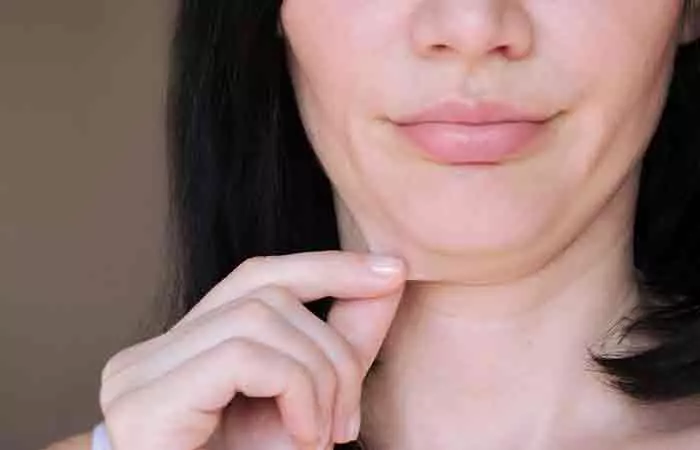
If you are wondering what old, saggy skin looks like, here are some pointers for you:
- Fine lines and wrinkles start appearing around your eyes.
- There is sagging around the eyes, jawline, and neck.
- Your skin looks stretched and does not immediately spring back into place when you pinch the sides of your cheeks.
If you have noticed all these signs, your skin is beginning to lose firmness.
Now, let us look at what causes your skin to sag as you age.
What Causes The Skin To Sag As You Age?

Sagging, dull, and wrinkled skin, as well as changes in your face shape and contour, are caused by factors, such as:
- Internal Factors
Some internal factors can wreak havoc on your skin’s structure and accelerate the aging process.
These include genetics, metabolism, and hormonal changes (2).
- External Factors
These include excessive exposure to sunlight, pollution, chemicals, and toxins that expose our bodies to free radicals and eventually lead to collagen loss and premature sagging (2). Collagen is one of the most abundant proteins found in the body and is vital for ensuring skin health. As you age, the body loses collagen naturally.
- Reduced Skin Elasticity
Research claims that sagging may occur due to reduced skin elasticity and muscle function associated with aging and redistribution of superficial and deep fat compartments (2), (3).

- Rapid Weight Loss
According to a study, a significant amount of weight loss can lead to hanging, saggy skin (4). As you gain weight, your skin tends to stretch, damaging the collagen and elastin fibers in the process (5). However, if you end up losing weight too quickly, your skin, after years of being stretched, loses elasticity and may not be able to fit onto the smaller body frame. Thus, it starts hanging loose (4).
- Consuming Too Much Sugar
Consuming too much sugar leads to the formation of advanced glycation end productsi Harmful molecules formed when protein or fat combines with sugar in the blood and affect metabolic health. (AGEs). This can lower the production of new collagen and elastin, leading to skin sagging (6).
- Dehydration
As per research, healthy hydration is key to maintain your overall skin health (7). Dehydration can lead to dry, wrinkled, and lifeless skin (8).
Certain vitamin deficiencies also can cause skin to sag. Learn more in the next section.
What Vitamin Deficiencies Cause Sagging Skin?
- Vitamin A Deficiency
Deficiency in vitamin A results in the alteration of the epithelial tissues (9). This may make the skin dry and dull. - Vitamin B Deficiency
B vitamins, especially vitamin B3, are known to regulate cell regeneration and metabolism (2). Their deficiency may make the skin appear loose. - Vitamin C Deficiency
Vitamin C deficiency is associated with reduced collagen synthesis, which can cause skin to sag (10). It is also responsible for scurvy that leads to skin lesions and slows down wound healing. - Vitamin D Deficiency
Vitamin D is known to protect the skin against UV-induced signs of aging (11). Its deficiency may lower the skin’s immunity against the sun. - Vitamin E Deficiency
Vitamin E possesses anti-aging, firming, hydrating, and photoprotective properties (12). Its deficiency may lead to premature aging.
So, now that you have a basic understanding of what causes premature sagging, here’s how you can reverse skin aging with the various treatment options available at your disposal.
How To Reverse Skin Aging

For many people, reversing skin aging involves going through aggressive surgical procedures. However, that is not always required. There are various at-home remedies, such as skin-tightening face masks, and cosmetic treatments you can try to preserve your skin’s firmness. These include:
I. Non-Surgical Methods
1. Anti-Aging Firming Creams
Anti-aging firming creams that contain vitamins A, B3, C, and E are rich in antioxidants and boost collagen production. Also, look for ingredients like retinoids, collagen, and elastin, which have potent anti-aging benefits (2).
Make sure to use a firming cream for skin tightening every day and follow a dedicated skin care routine that includes wearing sunscreen without fail.
 Quick Tip
Quick Tip2. Facial Exercises
Maintaining an at-home facial exercise regimen for about 30 minutes for at least 20 weeks can improve mid-face and lower face fullness and make the skin firmer and tighter (13).
You can complement your facial exercise regimen with a jade roller or a gua sha stone to tone and relax your facial muscles and boost blood circulation. However, note that the efficacy of using such tools has not been scientifically proven yet.
3. Oral Supplements
There is some scientific evidence that claims that oral supplements can offer anti-aging benefits (14). Also termed as functional foods, they contain carotenoids, polyphenols, vitamins C and E, red ginseng, omega-3 fatty acids, collagen peptides, etc. These ingredients can be effective in providing hydration, reducing dullness, and enhancing the overall appearance of your skin.
Some supplements that you can take include:
- Collagen Peptides
Consuming collagen dipeptides may significantly improve skin moisture, elasticity, wrinkles, and roughness (15).
- Vitamin C
Vitamin C supplements offer a variety of skin benefits, such as repairing damaged skin cells, boosting collagen production, delaying skin aging, and assisting in wound healing (16).
II. Cosmetic Procedures
Cosmetic surgeries for getting rid of excess skin include liposuctioni A cosmetic surgical process to break down and remove excess fat from different body parts using a suction technique. , abdominoplasty (tummy tuck), and mastopexy (breast lift).
These treatments can potentially reverse skin damage and regenerate the elastic fiber system and collagen (16). However, please consult your dermatologist before undergoing any cosmetic procedure to understand the side effects.
Some common and effective cosmetic procedures include:
1. Chemical Peels
This non-invasive procedure is great for improving your skin texture and elasticity, as it can assist in repairing and regenerating your skin cells (2). It also increases collagen production and water content in your skin.
Note that chemical peels can be performed on your face, neck, and hands and ideally should be done every 4-6 weeks.
2. Laser Resurfacing
Laser resurfacing can be effective in counteracting photoaging. Common types of laser surfacing treatments include fractionated CO2 laser and erbium glass or erbium-YAG lasers. These devices emit pixelated light onto the skin, which works towards wound healing and skin tightening (2).
Remember that these types of treatments require multiple sessions to be effective. Plus, the results will not be permanent, and the normal aging process can relapse.
 Quick Tip
Quick Tip3. Injectable Dermal Fillers
Fillers are products injected into the skin. They are made up naturally occurring substances like hyaluronic acid, calcium hydroxyapatite, and synthetic fillers like PMMA etc.
These injectables can reduce wrinkles and boost the synthesis of collagen, elastin, and HA (hyaluronic acid) (2).
4. Botulinum Toxin (BTX)
Regular BTX injections can reduce certain dynamic facial lines and wrinkles, thereby slowing down the visible aging process (2).
5. Autologous Platelet-Rich Plasma (PRP)
PRP is derived from fresh whole blood, which contains a high concentration of platelets. This treatment is widely used for skin rejuvenation by boosting collagen production (2).
These are some of the natural and cosmetic treatment options that can help make your skin firm and give it a tight lift. Now, let us see whether certain skin firming techniques are better for specific areas of the body.
Do Some Skin Tightening Techniques Work Better On Different Areas?
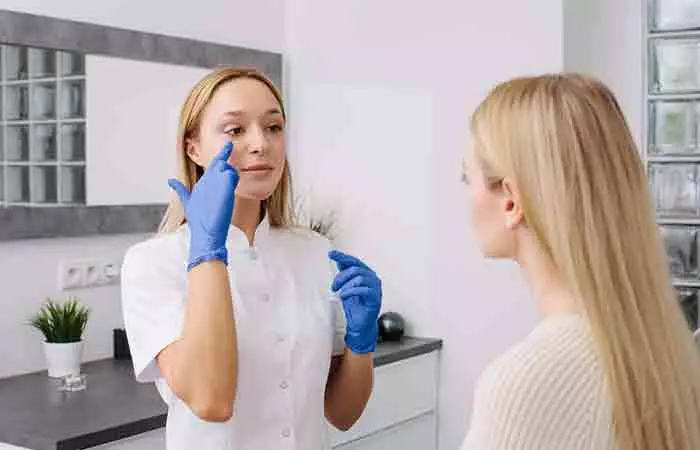
Yes, different firming techniques work better on different parts of the body. For instance, ultrasound skin tightening and over-the-counter lotions and creams work better for tightening the skin on your face and neck.
Weight training exercises that help build mass work better for tightening areas around the arms and legs. In contrast, laser resurfacing treatment is preferred for tightening the skin around the abdomen. Always consult a dermatologist before proceeding with these treatments, whether natural or cosmetic.
Next, let us check out some tips to follow to maintain a firmer body and face.
Expert Tips To Keep Your Skin Tight And Firm

If you wish to know how to keep your skin tight and firm, here are some expert-approved tips that work as long as you follow them diligently:
- Use A Moisturizer Every Day
Moisturizers contain substances, such as dimethicone, petrolatum, mineral oil, sesame oil, sunflower oil, etc., that can reduce water loss and, in turn, boost skin firmness.
Opt for a serum or a moisturizer that contains peptides or antioxidant-rich vitamins B3, C, and E. These can boost collagen and elastin production while keeping your skin firm and hydrated (2).
- Sun Protection
An important tip for ensuring firm skin is to keep it protected from the sun at all times. Use a lightweight sunscreen with SPF 30 or higher to avoid UV damage.
- Keep Yourself Hydrated
As mentioned earlier, hydration is key for your skin’s natural functioning. Make sure to drink at least 8 glasses of water a day to stay hydrated.
- Do Not Compromise On Your Sleep
Lack of sleep can cause skin dehydration, decrease skin elasticity, and accelerate the onset of wrinkles (17). Getting at least 8 hours of sleep every night allows your skin to repair itself from the wear-and-tear of everyday activities.
- Limit Exposure To Environmental Risk Factors
Research claims that by reducing smoking, focusing on good nutrition, and limiting exposure to sunlight, you can prevent premature skin aging (16).
Another tip is to use home remedies for skin tightening on a regular basis. These may help naturally improve your skin texture and firmness. Sweet Angel, a beauty vlogger, shares an easy and effective anti-aging skin-tightening home remedy using just one ingredient: egg whites. She highlights the benefits of eggs for the skin, and concludes with her post-mask skincare routine, featuring vitamin C serum and collagen-infused cream. She says, “You’re talking about firming and shrinking your pores, this one mask can do it. It’ll help reduce puffiness under your eyes (i).” She adds that this mask can also help reduce blemishes, blackheads, and oiliness while also offering UV protection.
As you age, your skin starts losing its elasticity, which results in the formation of fine lines and wrinkles. Factors such as hormonal changes, exposure to pollutants, dehydration, and rapid weight loss can contribute to sagging skin and reduced production of collagen. To ensure you have firmer skin and slow down aging, you can try facial exercises, exfoliation, anti-firming creams, and oral supplements. You can also opt for medical procedures such as chemical peels or dermal fillers to boost collagen production and retain moisture in your skin. Last, but not least, keep yourself hydrated, moisturize daily, and sleep well to keep your skin soft and supple.
Frequently Asked Questions
Does stress impact skin firmness?
Yes, stress can reduce collagen production in the skin by altering its synthesis, thereby impacting skin firmness (18). So, keep your stress levels in check by taking periodic breaks from a busy lifestyle and social interactions, practicing mindfulness activities like yoga, meditation, running, etc., or journaling to unburden your mind from negativity.
Is Aloe Vera good for tightening skin?
Yes, aloe vera stimulates fibroblastsi A type of cell that produces collagen, a protein that maintains the structural integrity of the skin and connective tissues. to boost elastin and collagen production. This may result in firmer skin.
Should I take collagen every day?
Yes, you can take collagen supplements or foods rich in collagen peptides every day. Consult your doctor for further information.
What foods have collagen?
You can eat foods such as fish, citrus fruits, bell peppers, and tomatoes that are rich in collagen (16), (19).
Does coconut oil tighten skin?
Coconut oil may increase collagen, which may keep your skin firm (20).
At what age does your face change most?
You can start seeing early signs of aging from 30 onwards.
Does coffee reduce collagen?
Yes, coffee may reduce collagen synthesis (21).
Say goodbye to sagging skin! Explore this captivating video guide to uncover effective techniques and tips for achieving firmer, more youthful-looking skin on your face.
Personal Experience: Source
StyleCraze's articles are interwoven with authentic personal narratives that provide depth and resonance to our content. Below are the sources of the personal accounts referenced in this article.
i. At Last! The One Ingredient to Tighten and Improve Skin in 2025https://www.youtube.com/watch?v=UvNK8F74KHI
References
Articles on StyleCraze are backed by verified information from peer-reviewed and academic research papers, reputed organizations, research institutions, and medical associations to ensure accuracy and relevance. Read our editorial policy to learn more.
- Percent of protein in body that is collagen
https://bionumbers.hms.harvard.edu/bionumber.aspx?id=109730 - Skin anti-aging strategies
https://www.ncbi.nlm.nih.gov/pmc/articles/PMC3583892/ - Sagging of the cheek is related to skin elasticity, fat mass and mimetic muscle function
https://www.researchgate.net/publication/26687934_Sagging_of_the_cheek_is_related_to_skin_elasticity_fat_mass_and_mimetic_muscle_function - Body Contouring Following Massive Weight Loss
https://www.ncbi.nlm.nih.gov/pmc/articles/PMC6188338/ - Image analyzer study of the skin in patients with morbid obesity and massive weight loss
https://pubmed.ncbi.nlm.nih.gov/25671051/ - Sugar Sag: Glycation and the Role of Diet in Aging Skin
https://pubmed.ncbi.nlm.nih.gov/27224842/ - Dietary water affects human skin hydration and biomechanics
https://www.ncbi.nlm.nih.gov/pmc/articles/PMC4529263/ - The influences of skin visco-elasticity, hydration level and aging on the formation of wrinkles: a comprehensive and objective approach
https://pubmed.ncbi.nlm.nih.gov/22672420/ - Vitamin A in Skin and Hair: An Update
https://www.ncbi.nlm.nih.gov/pmc/articles/PMC9324272/ - Discovering the link between nutrition and skin aging
https://www.ncbi.nlm.nih.gov/pmc/articles/PMC3583891/ - Unravelling of hidden secrets: The role of vitamin D in skin aging
https://www.ncbi.nlm.nih.gov/pmc/articles/PMC3583884/ - Bioactive Compounds for Skin Health: A Review
https://www.ncbi.nlm.nih.gov/pmc/articles/PMC7827176/ - Association of Facial Exercise With the Appearance of Aging
https://www.ncbi.nlm.nih.gov/pmc/articles/PMC5885810/ - The Role of Functional Foods in Cutaneous Anti-aging
https://www.researchgate.net/publication/274243045_The_Role_of_Functional_Foods_in_Cutaneous_Anti-aging - . A Collagen Supplement Improves Skin Hydration, Elasticity, Roughness, and Density: Results of a Randomized, Placebo-Controlled, Blind Study
https://www.ncbi.nlm.nih.gov/pmc/articles/PMC6835901/ - The Roles of Vitamin C in Skin Health
https://www.ncbi.nlm.nih.gov/pmc/articles/PMC5579659/ - A study of skin characteristics with long-term sleep restriction in Korean women in their 40s
https://pubmed.ncbi.nlm.nih.gov/31692145/ - Stress, immunity and skin collagen integrity: evidence from animal models and clinical conditions
https://pubmed.ncbi.nlm.nih.gov/19523511/ - Skin Antiageing and Systemic Redox Effects of Supplementation with Marine Collagen Peptides and Plant-Derived Antioxidants: A Single-Blind Case-Control Clinical Study
https://www.ncbi.nlm.nih.gov/pmc/articles/PMC4745978/ - Anti-aging Effects of Select Botanicals: Scientific Evidence and Current Trends
https://www.researchgate.net/publication/327734204_Anti-aging_Effects_of_Select_Botanicals_Scientific_Evidence_and_Current_Trends - Influence of caffeine and hyaluronic acid on collagen biosynthesis in human skin fibroblasts
https://www.ncbi.nlm.nih.gov/pmc/articles/PMC4206198/
Read full bio of Dr. Rinky Kapoor
Read full bio of Arshiya Syeda
Read full bio of Ramona Sinha
Read full bio of Swathi E








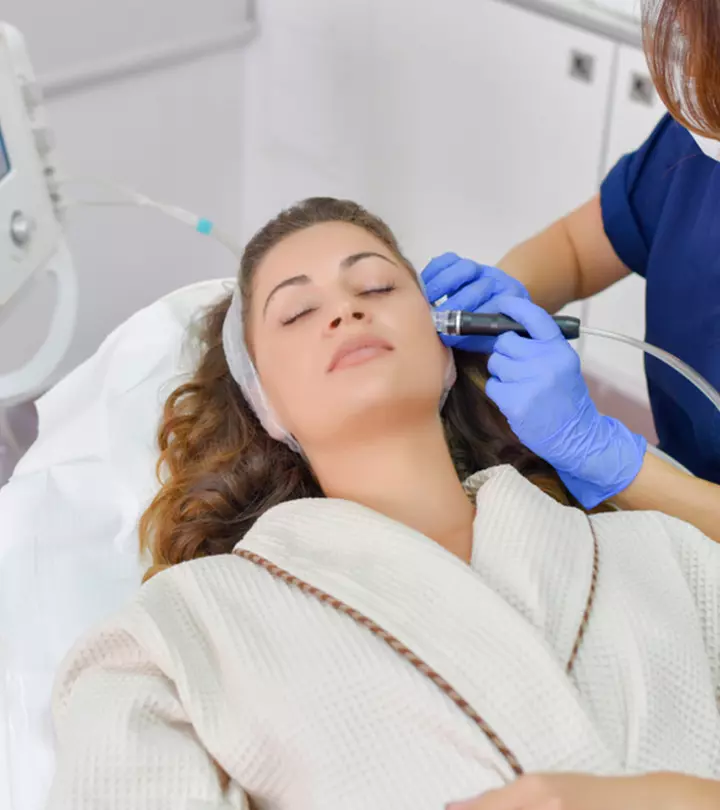

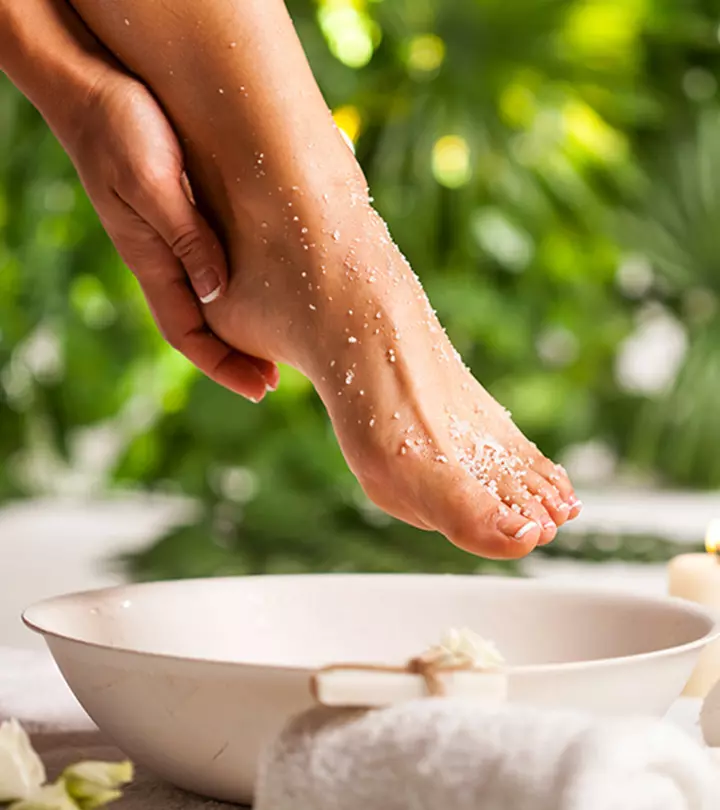

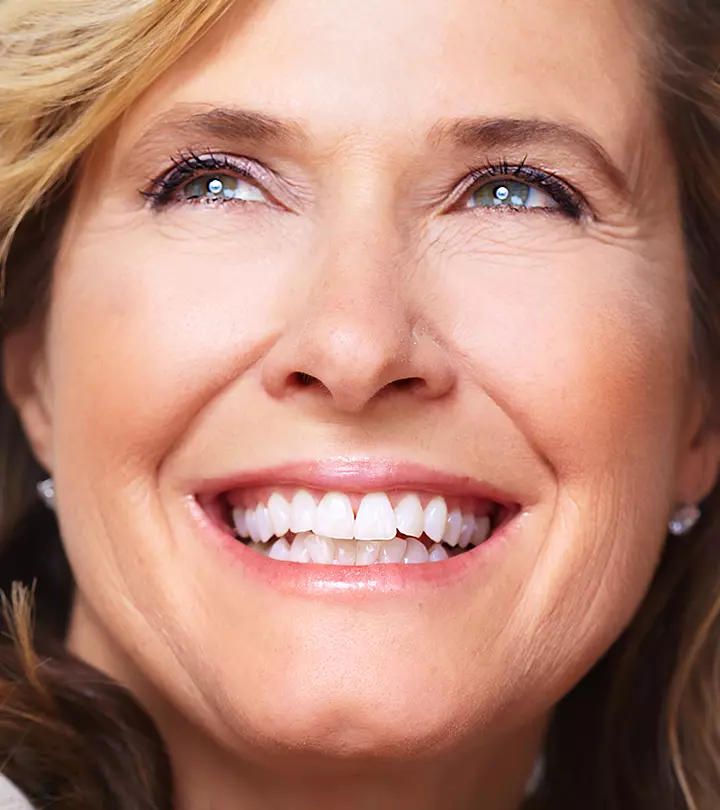
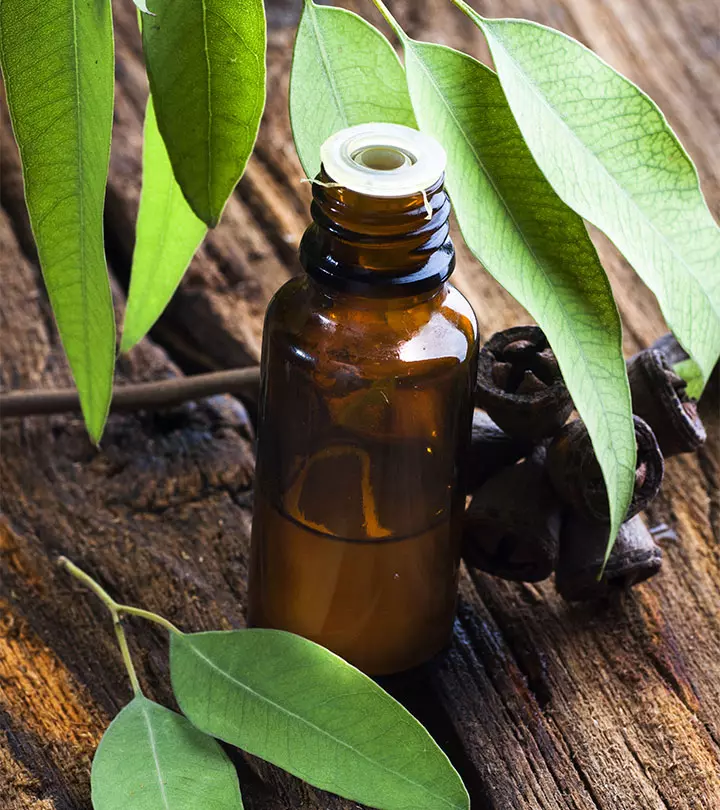
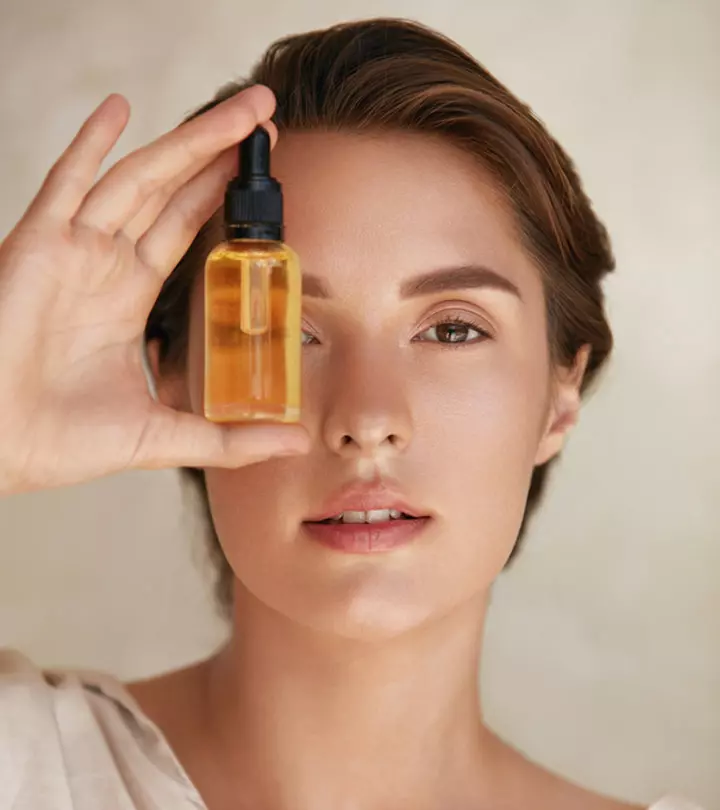
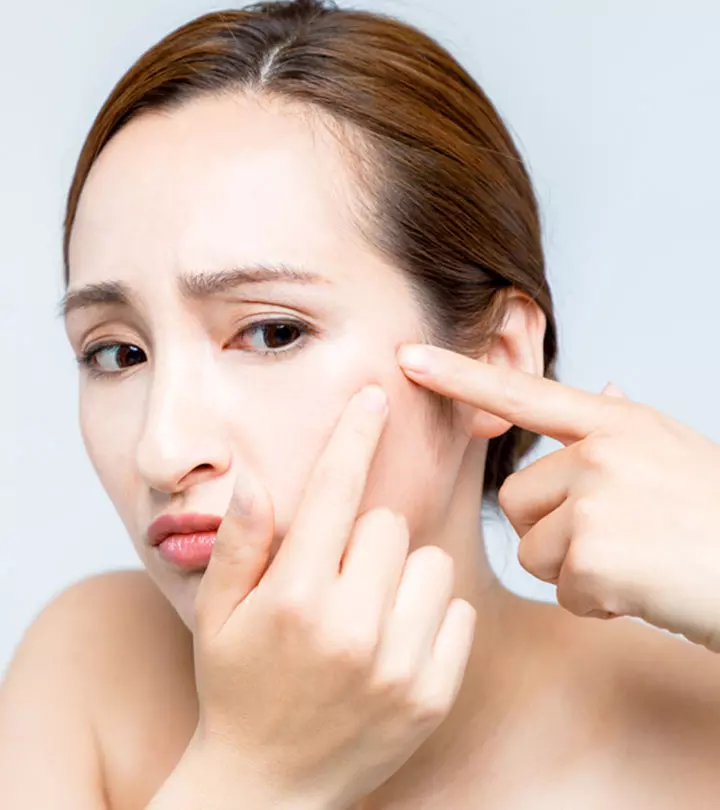



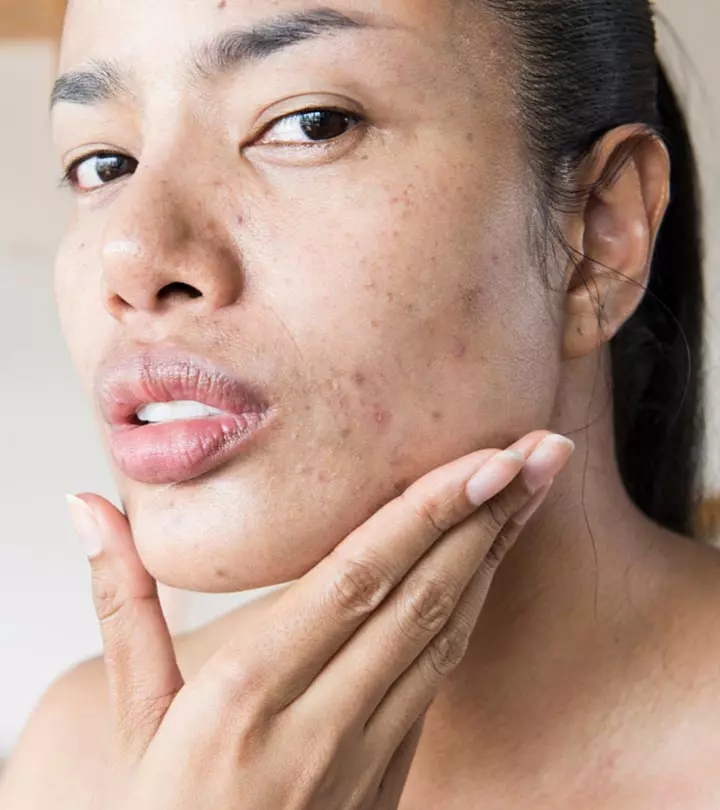

Community Experiences
Join the conversation and become a part of our empowering community! Share your stories, experiences, and insights to connect with other beauty, lifestyle, and health enthusiasts.